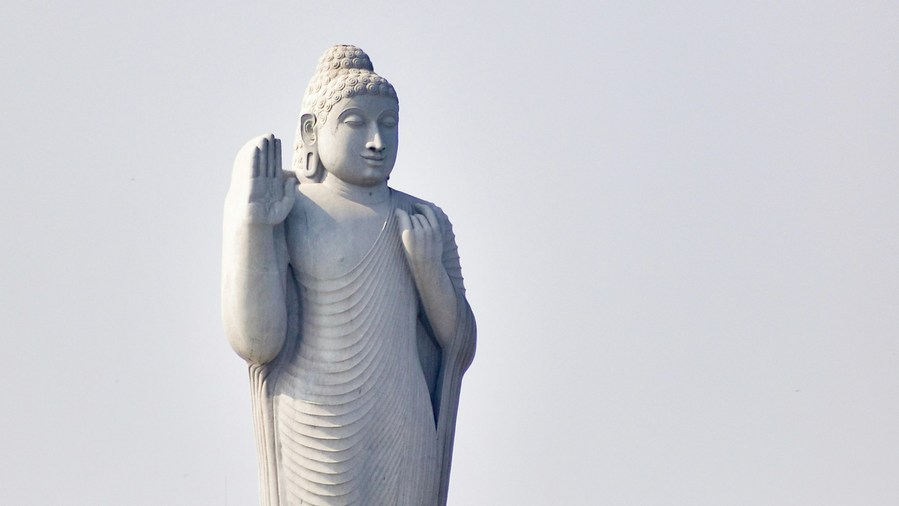- Of all paths, the Noble Eight Fold Path is the best. Of all truths, the Four Noble Truth is the best. Of all things, the passionless state, Nibbāna, is the best. Of all humans, the one with eyes of the Dhamma, Buddha, is the best.
- This is the only path for purifying one’s vision of truth; there is no other. Follow it and you will bewilder Māra.
- By following the Noble Eight Fold Path you can put an end to suffering. I have taught you this path which pulls out arrows of defilements.
- You, yourself, must make a strong effort to attain Nibbāna. Buddhas only point the way. Those who follow the path and those who meditate will be freed from Māra’s bonds.
- “All conditioned things are impermanent”—when one sees this with wisdom, one gives up admiration for suffering which is disguised as happiness. This is the path to purification, Nibbāna.
- “All conditioned things are suffering”— when one sees this with wisdom, one gives up admiration for suffering which is disguised as happiness. This is the path to purification, Nibbāna.
- “All things are not-self”—when one sees this with wisdom, one gives up admiration for suffering which is disguised as happiness. This is the path to purification, Nibbāna.
- The inactive one who does not exert himself when he should, who though young and strong is full of laziness, with a mind full of vain thoughts—such an indolent person does not find the path to wisdom.
- Let a person be watchful in speech, well restrained in mind, and not commit evil by the body. Let him purify these three courses of action and fulfill the path taught by the sages.
- Wisdom arises from calm and insight meditation. Without meditation wisdom decays. Knowing this two-way path for progress and decline, conduct yourself on the path which grows wisdom.
- Oh monks, cut down the trees of defilements, but not the trees in the forest. From the trees of defilements, fear is born. Having cut down both large and small trees of defilements, be without defilements.
- As long as the underbrush of desire, even the slightest, of a man towards a woman is not cut down, his mind is in bondage, like the suckling calf to its mother.
- Cut off craving as one plucks with his hand an autumn lotus. Cultivate only the path to excellent peace, Nibbāna, as taught by the Well-Gone One, the Buddha.
- “Here I will live in the rainy season, here in winter and summer”—thus thinks the fool. He does not realize the danger that death might intervene.
- Some people live clinging to and intoxicated by children and wealth. Suddenly they are carried away to death by Māra, as a great flood carries away a sleeping village to the ocean.
- For someone who is seized by Māra, there is no protection by relatives. No one can save him—not sons, not father, and not relatives.
- Realizing this truth, let the wise person restrain himself with virtue. Let him quickly clear the path to Nibbāna.
Read this translation of Dhammapada 20 Magga Vagga: The Path (273-289) by Ven. Kiribathgoda Gnananda Thero on SuttaFriends.org. Or read a different translation on SuttaCentral.net, DhammaTalks.org, Ancient-Buddhist-Texts.net or AccessToInsight.org. Or explore the Pali on DigitalPaliReader.online.
Or read a translation in Deutsch, Tiếng Việt, Català, Čeština, Español, Français, עִבְֿרִיתּ, Magyar, Italiano, 日本語, Latine, मराठी, မြန်မာဘာသာ, Nederlands, Norsk, Polski, Português, සිංහල, Slovenščina, தமிழ், or 汉语. Learn how to find your language.

